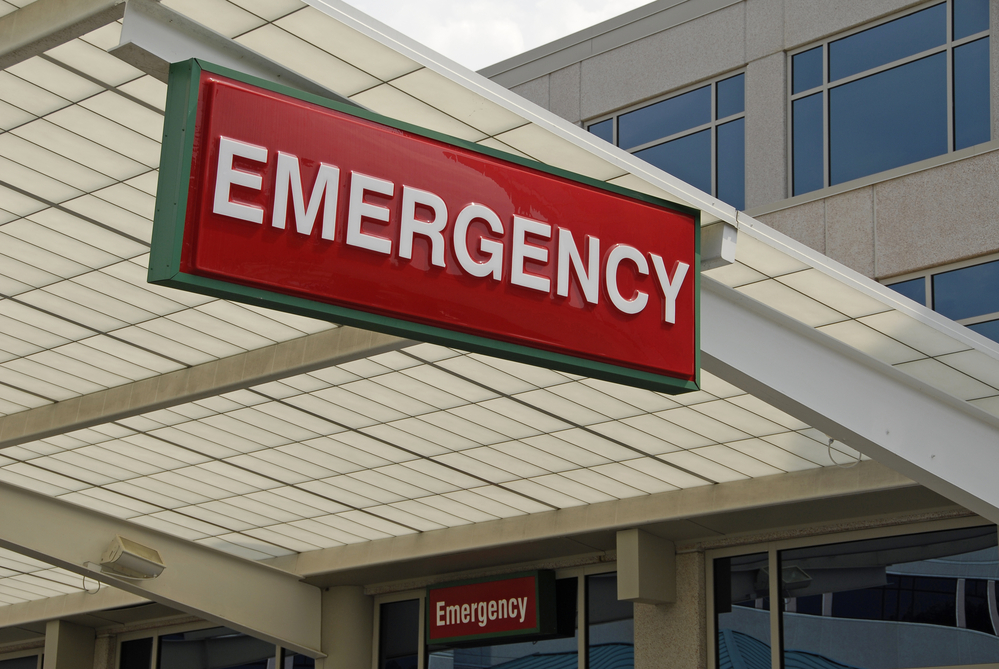A new study published in Psychiatric Services examined how the provision of a peer-delivered safety planning intervention (SPI) may provide adequate clinical support for patients in the Emergency Department (ED). Findings show that peer-based SPI may result in fewer return ED visits, suggesting that safety planning with peers is an effective intervention. These results provide a new opportunity to include peer-support services in conjunction with clinical intervention to enhance suicide prevention efforts.
“Unfortunately, general medical and mental health staff in the ED have limited time and training to maintain the fidelity of suicide interventions, and therefore brief, low-threshold evidence-based efforts are likely most feasible for implementation,” write the authors, led by Michael P. Wilson, a researcher at the University of Arkansas Medical Services Department of Emergency Medicine.
 The present article brings forth timely research given recent calls for randomized control trials to assess the effectiveness of peer support work. Furthermore, individuals seeking crisis services in an ED usually encounter added barriers to care. Those who seek mental health treatment in emergency departments tend to wait longer, especially if they are uninsured or have Medicaid.
The present article brings forth timely research given recent calls for randomized control trials to assess the effectiveness of peer support work. Furthermore, individuals seeking crisis services in an ED usually encounter added barriers to care. Those who seek mental health treatment in emergency departments tend to wait longer, especially if they are uninsured or have Medicaid.
Although a promising intervention, peer support work brings unique challenges in supervision and professional development to meet the needs of service users. Therefore, Wilson and his team take the behavioral health field one step closer to learning how to adequately integrate a much-needed service in a high-need area for suicide treatment.
EDs provide nearly half of all medical care in the United States, suggesting that many patients who experience suicidal thoughts will present to an ED during their lifetime. Yet, despite the urgent need to treat suicidality, medical and mental health staff have limited time and training, which contributes to the need for low-threshold evidence-based efforts in EDs.
Safety planning interventions have been shown to reduce suicidal behavior after ED discharge through a personalized list of coping skills and social support. SPI is considered a best practice intervention that can be delivered in 20-45 minutes.
While not a long-term solution, SPI is a readily available resource that allows for providing services in high-demand settings. SPI delivery may be improved through a peer-based connection that affords more time and compassion than general mental health and medical care.
“Studies from both outpatient and inpatient settings have shown that the use of peers to deliver suicide prevention efforts has been associated with reductions in emergency services use, reduced numbers of readmissions to a psychiatric unit, and increased scores on various recovery assessment scales. However, no studies to date have prospectively evaluated peer-delivered SPI in the ED setting.”
The research team conducted a pilot randomized controlled trial (RCT) in an urban ED with patients (n = 31) presenting with suicidal ideation or suicide attempt. Researchers assessed the feasibility, acceptability, and preliminary effects of peer-delivered SPI compared to provider-delivered SPI. Preliminary effects of interest were defined as the ability of safety planning to prevent ED return visits.
Both sets of professionals (peer support and medical/mental health) received training in SPI as a part of the research protocol tailored to their roles. After arriving at the ED at scheduled study times, patients were randomly allocated to peer-delivered or provider-delivered services through online software. The Stanley and Brown Patient Safety Plan Template was used with patients before demographic and clinical data were collected through survey administration.
The quantitative analyses did not find a significant difference in patients’ visits three months before or after enrollment. However, participants who engaged in SPI with peers had a significant decrease in ED return visits.
Further research should assess whether this difference is due to more complete and higher-quality safety plans in the peer group, delivery of SPI by a peer, or a combination of both factors.
“These findings are consistent with the rapidly growing popularity of using peers to deliver mental health and substance use interventions worldwide. Peer-delivered interventions are especially popular in the United Kingdom, where peers are used in many mental health facilities (47). In the United States, more than 30 states now have some level of Medicaid reimbursement for peer specialists,” the authors write.
These findings contribute additional evidence to the effectiveness of peer support staff in mental health treatment which has increased tremendously in popularity during recent years.
****
Wilson, M.P., Waliski, A., & Thompson R.G. (2022). Feasibility of peer-delivered suicide safety planning in the emergency department: Results from a pilot trial. DOI: 10.1176/appi.ps.202100561. (Link)















More needs done to prevent the suicide increases among little girls.
In the future nobody will take women seriously.
Women must therefore take their own selves seriously.
Abandon all hope in the near future going to be nice.
The far away future will honour women eventually.
In the mean time choose silence as if it is the making of you.
I go.
Report comment
This sounds like Psychological Policing. That we cannot have.
We must eliminate the entire mental health system.
Joshua
Report comment